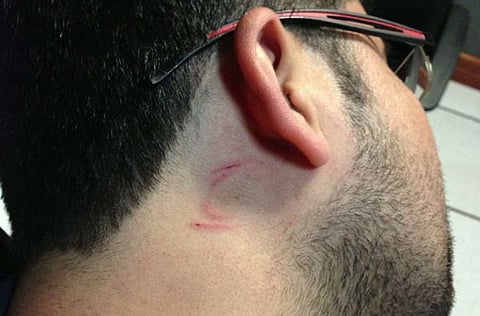Crow attacks terrify Dubai’s Discovery Gardens residents
People wary of aerial assault after angry bird ‘beaks’ scores in bustling community

Dubai: An angry bird is forcing Discovery Gardens residents to run for cover. Literally.
Scores have been attacked by a single crow in recent weeks, residents of the bustling community told XPRESS. Almost all attacks have taken place near a car park opposite the West Zone Supermarket near the first roundabout.
“I have seen at least six to seven people get ‘beaked’ by the big black bird. It’s definitely one particular bird that does it all the time,” said Indian expatriate Satyam Singh Tomer who lives in the area.
His friend Ashutosh Sandhir, who was attacked last week, recalled: “I was walking back from the car park it came out of nowhere and swooped down upon me, grazing my neck. I saw a chemist immediately who then prescribed a lotion. Thankfully it wasn’t infectious.”
Fear of infection
Dr Reza Khan, specialist in wildlife and zoo management in the Public Parks and Horticulture Department, Dubai Municipality, doesn’t rule out the possibility of infections following a crow attack.
“These common house crows scavenge on anything and everything from refuse around human habitations to carcasses of small animals on streets. They usually don’t bite, but because of the nature of the food they eat, they can sometimes be carriers of infection,” says Dr Khan.
Another victim Prantosh Naha said he was attacked four times in a span of three months. “The other day I saw the crow target a group of ladies. One of them was carrying food, but every time I have been attacked I had nothing on hand, except a bag,” said the 42-year-old Indian who lives in a building right in front of the crow’s ‘ambush point’.
“It looks like a case of mistaken identity. Someone resembling one of the victims must have caused harm to the bird and now it’s attacking people to seek revenge,” said Khan.
He weighed another possibility. “Birds often get protective about their nests. It could be that there is a nest somewhere close by.”



